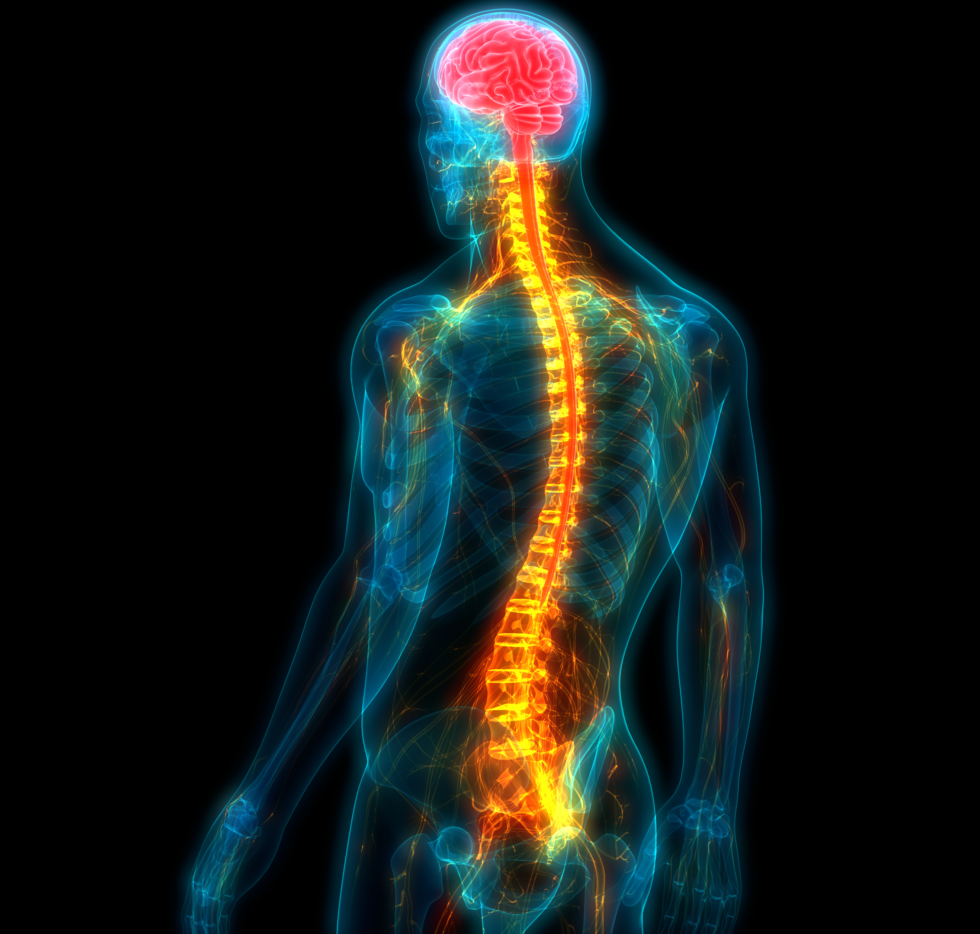Brain and Spine Injury
Traumatic Brain Injury
According to the Centers for Disease Control (CDC), approximately 175 Americans suffer a traumatic brain injury (TBI) every day of the year. At any given time, there are about 5.25 million Americans who are dealing with the consequences of a traumatic brain injury. That should give you some idea of the true breadth of the problem in this country. Ongoing research has allowed us to glimpse the inner workings of the brain to a greater extent than ever before, so we know more about the prevention and treatment of the condition than at any time in the past.
However, we’re a long way from accurately diagnosing TBI, in part because symptoms are not easily observable. In emergency rooms after a major accident, traumatic brain injury is diagnosed correctly only 44% of the time, which means most TBI cases are not immediately recognized. That’s why it’s essential to retain a TBI lawyer in San Francisco who understands all the nuances of modern medical care and what it’s capable of in treating the condition. Brain and spine injury law is likewise fraught with a great many subtleties, and it’s necessary to have an experienced TBI attorney in San Francisco who is totally familiar with how the law works, relative to brain and spinal injuries.
What constitutes a traumatic brain injury?
The CDC provides us with a definition of traumatic brain injury as any kind of serious disruption in to the normal function of the brain. This could be caused by any number of things, for instance a blow to the head, although it’s also possible for serious brain injuries to occur with no transfer of force and no direct contact to the head. Here are some of the potential ways that traumatic brain injury may occur:
- an object can penetrate the skull, causing damage to brain tissue, cells, and blood vessels
- a severe blow to the head can cause brain cell structures to be ripped apart
- proximity to an explosion can trigger massive damage to the brain
- some kinds of brain injuries will trigger clots, swelling, and bleeding in the brain, frequently causing a significant disruption to oxygen supply and triggering additional damage
- there could be damage to several different parts of the brain, since the brain moves around within the skull.
Anyone who undergoes a traumatic brain injury is vulnerable to incurring some kind of cognitive impairment. This can lead to an inability to control your emotions, and it can trigger significant personality changes. The CDC has declared that TBI is responsible for more than 64,000 deaths annually in this country, and a great many other serious injuries can leave victims in a vegetative state. The majority of traumatic brain injuries are the result of concussions and what you might think of as relatively mild TBIs, but they still have to be taken very seriously. This is why you’re always well-advised to have an experienced traumatic brain injury attorney in San Francisco helping you with your particular case.
Causes of spinal cord and brain injuries
Around half of all injuries to the brain or spinal cord in this country are triggered by collisions between motor vehicles. The most common types of motor vehicle accidents are T-Bone collisions and rear-end collisions, both frequently causing major injuries to drivers and passengers of all vehicles involved. Other activities that may cause brain and spinal injuries include sports or recreational activities, accidental falls, alcohol-related incidents, acts of violence, and medical conditions like osteoporosis, cancer, and arthritis.
Of these known causes, approximately 13% are attributable to acts of violence, such as knife wounds or gunshot wounds. Another 10% are due to the result of recreational participation, or sports involving a significant amount of contact. It can only take a moment for a person to undergo a serious brain or spinal cord injury, but the time necessary to recover from it can be extremely long. In some cases, people never recover after having sustained a traumatic brain injury or an injury to the spinal cord.
Obvious symptoms of brain injuries
Unfortunately, there is no one test that exists to help accurately diagnose a traumatic brain injury or some kind of injury to the spinal cord. Even when experienced medical personnel make use of CT scans and MRIs, these procedures can frequently fail to identify cases where a traumatic brain injury has occurred. That makes it doubly important to know exactly what to look for in the aftermath of some serious accident. Here are some of the most common symptoms that occur following a traumatic brain injury, or some kind of injury to the spinal cord:
✔ Loss of consciousness or impairment to the sensory abilities
✔ Significantly impaired judgment
✔ Noticeable changes in personality and behavior, often involving unexplained mood swings
✔ Nausea and or vomiting
✔ Partial paralysis of limbs or the facial muscles
✔ Sensitivity to sound or light
✔ Aggressive behavior where it did not exist before
✔ Slurred speech or difficulty communicating
✔ Unexplained fatigue
✔ Seizures
✔ Depression
✔ Sleep disorders such as insomnia
✔ Dizziness or vertigo
✔ Inability to concentrate or focus
✔ Memory loss
✔ Persistent headaches
When these symptoms are not identified or not properly treated quickly, some types of traumatic brain injuries can metamorphose into long-term complications. Some of these long-term issues involve permanent damage to responsiveness, awareness, or consciousness. It’s very common for such long-term issues to require the need for assistive devices like walkers, wheelchairs, or canes.
In some cases, traumatic injuries can cause paralysis throughout various parts of the body, especially from the neck down. The best way to ensure that you get the treatment you need after a TBI, is to retain the services of a knowledgeable San Francisco TBI attorney. It is absolutely essential that you be reimbursed for the true value of your case, because any long-term complications resulting from a TBI are likely to be quite expensive.
Hiring a brain and spinal cord injury attorney in San Francisco
It can be a difficult decision choosing one specific TBI lawyer to represent you in your case. But it’s essential that you choose the right attorney because the truth of the matter is that following a TBI injury, most victims never fully recover. The brain is not like other parts of the body which are able to regenerate cells. When brain cells become damaged, and the connections within the brain are severed, functionality is lost unless the brain can adapt and learn new ways of performing those same functions. This is a big reason for the importance of selecting the right San Francisco personal injury attorney to represent you in your TBI case. To help you in your quest, here are a few tips that you might want to keep in mind:
✔ interview several brain and spine injury attorneys before making any selection
✔ find out about the experience level of any candidate attorney
✔ learn if your attorney has handled jury trials and spine injury litigation in the past
✔ find out the results of cases your lawyer was involved in with regard to TBI injuries
✔ ask where the attorney obtained their law degree
✔ find out if the attorney will be personally working on your case, or if it will be delegated to another partner
✔ if another attorney will be handling your case, make sure to interview that attorney
✔ Is a return retainer fee necessary to start the process?
✔ How is billing handled in their law office?
There’s undoubtedly a great deal to think about, and tons of details that have to be managed in the aftermath of a TBI or spinal cord injury. It’s never easy to go through the process of hiring the right lawyer to represent you in such cases, but if you conduct a thorough interview with each candidate, you should end up with someone you can be happy with. While you’re interviewing candidates, you should be able to find out if this is an attorney you can work with, and whether you have good communications with that individual.
How can a San Francisco brain and spinal cord injury attorney help you?
By hiring the right traumatic brain injury lawyer, your chances of being reimbursed appropriately are vastly increased. However, there’s more to hiring a good TBI lawyer than being properly compensated. Over the course of your case, your lawyer will probably become close enough to you to be a confidant and possibly even a friend. A good TBI attorney in San Francisco will ensure that you don’t settle for less than what you deserve in your case, and good representation like this will ensure that your rights are not violated. Here are some of the most prominent ways that a good TBI lawyer can further your claim and ensure that you are properly compensated:
- take the case to court if necessary, so that you can be reasonably compensated
- effectively relating your story to a jury
- accumulating all medical records to document your injury
- accurately identifying the parties responsible for your injury
- demonstrating how a TBI or spinal cord injury has negatively impacted your life
- negotiating reasonable compensation for your injuries
- calculating the total value of losses you incur, both economic and non-economic.
If it becomes necessary to take your case to trial, our San Francisco attorneys can represent you in the most experienced and knowledgeable way possible. That will increase the likelihood that you are adequately compensated for your injuries, so that you’ll have a chance to become whole again. The sooner you can find the right San Francisco TBI attorney to represent you in your case, the more likely it is that you’ll receive the compensation you deserve, and that your life can someday return to normal.
Free Consultation
We can come to you!
The personal injury attorneys at Light & Miller, LLP understand that circumstances following an injury can severely limit mobility and everyday functioning. As such, we can come to you and provide an initial consultation at absolutely no cost to you..
*Disclaimer: Our operation of this website does not create or intend to create an attorney/client relationship with you. Contact with Light & Miller, LLP or any employee of the firm does not constitute the establishment of an attorney/client relationship until a formal, written representation agreement has been reached between you and the firm to handle a particular matter. While we are happy to have you contact us, please understand that any information conveyed to the firm via email goes through the internet and therefore may not be secure. Additionally, until any conflict of interest has been addressed and a formal written agreement has been reached with the firm regarding representation, any information imparted to the firm may not be viewed as privileged or confidential.
Contact Us

NORTHERN CALIFORNIA OFFICE
1990 N. California Blvd., Suite #800
Walnut Creek, California 94596
Phone: (925) 932-7026
Fax: (619) 996-7070
SOUTHERN CALIFORNIA OFFICE
8880 Rio San Diego Drive, Rio Vista Tower, Suite #800 San Diego, California 92108
Phone: (925) 932-7026
Fax: (619) 996-7070
COLORADO OFFICE*
14143 Denver West Parkway, Suite #100
Golden, Colorado 80401
Phone: (720) 330-2848
Fax: (720) 330-2849
* Colorado cases are handled exclusively by LIGHT & MILLER, LLP Attorney, Christopher Light
CALIFORNIA RESOURCES
California Dept. of Industrial Relations Wage Claim
California Department of Justice
Worker's Compensation Appeals Board (WCAB)
California Judicial Branch (Courts)
California Department of Transportation


